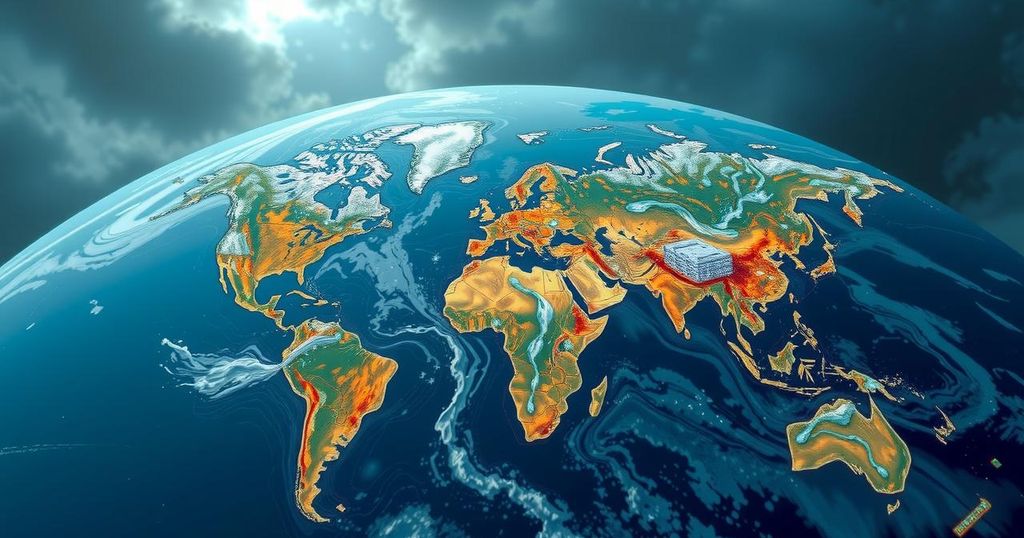The climate crisis is largely responsible for the growing frequency and intensity of extreme weather events. Recent attribution studies reveal that fossil fuel burning has profoundly changed climate patterns, leading to unprecedented weather phenomena such as heatwaves, floods, and intense storms. The accumulated research underscores the urgent need to address these climate impacts as they continue to escalate globally.
The question of whether the climate crisis is responsible for the extreme weather events that are increasingly devastating communities worldwide is critical yet complex. Recent scientific advances in climate attribution have allowed for a clearer understanding of this relationship. It is revealed that the burning of fossil fuels has significantly altered the climate, leading to a rise in the frequency and intensity of heatwaves, floods, and storms beyond what has been experienced throughout human history. Attribution studies employ three primary methods to analyze current weather patterns against historical data. They compare present weather events with past occurrences, utilize climate models to simulate preindustrial climates, and examine trends over time through simulations of gradually rising emissions. The findings highlight that unprecedented heatwaves, particularly those occurring without historical precedent, can only be attributed to climate change. Approximately 24 such heatwaves have already been recorded globally. Further analysis indicates that additional extreme weather events, including more intense rain and stronger winds, have also been adversely affected by global heating. Of the 744 attribution studies compiled by Carbon Brief, three-quarters found that climate change has exacerbated these conditions. Specifically, 95% of over 200 studies focused on heatwaves determined that they are now more severe or more likely due to climate change. In terms of floods and droughts, while floods are influenced by various factors, including land and infrastructure, studies established that over 60% of rainfall and flooding events, along with about 70% of droughts, were made more likely by human-induced climate change. More critically, research shows a direct connection between global heating and the outcomes of extreme weather events, revealing that significant loss of life could be attributed to climate-induced heat stress. Additionally, attribution studies are increasingly serving as evidence in legal frameworks where accountability for climate damages is a rising concern. While only a portion of extreme weather events are analyzed, the existing body of research sufficiently supports strong assertions regarding the influence of climate change on global weather patterns, establishing a clear link between anthropogenic activities and environmental impacts. In conclusion, the existing body of scientific evidence compellingly demonstrates that human-induced climate change is a significant factor driving the frequency and severity of extreme weather events. Continuous research in climate attribution will further elucidate these connections, underscoring the profound impact of the climate crisis on our environment.
As extreme weather events become more frequent and severe, understanding their connection to climate change is imperative. The scientific method known as climate attribution has developed over the years, enabling researchers to discern the extent to which human-induced climate change exacerbates these events. This exploration incorporates historical weather data, climate modeling, and trend analysis to articulate a clearer picture of the current climate crisis and its ramifications.
In summary, a wealth of scientific research indicates that the climate crisis significantly contributes to the increasing severity and frequency of extreme weather events. Heatwaves, floods, and storms manifest more intensely due to global heating, with attribution studies confirming a substantial link between fossil fuel emissions and environmental consequences. Such knowledge is vital for both public awareness and legal responsibility in the context of climate adaptations and climate justice.
Original Source: www.theguardian.com






